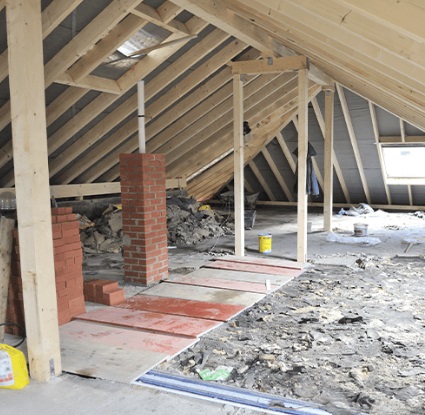The Impact of New Regulations on Vancouver’s Real Estate Market

The Vancouver real estate market has long been a topic of intense discussion, both locally and globally. Known for its picturesque landscapes, vibrant culture, and robust economy, Vancouver consistently attracts a diverse range of buyers, from local families to international investors. However, with escalating property prices and affordability concerns, the government has introduced several new regulations aimed at stabilizing the market. This blog will explore the impact of these new regulations on Vancouver’s real estate market, providing insights and analysis on how they are shaping the current landscape. For the latest updates, keep an eye on “Vancouver real estate news today.”
Background on Vancouver’s Real Estate Market
Vancouver’s real estate market has experienced significant growth over the past few decades, driven by a combination of economic factors, immigration, and investment from both domestic and international buyers. The demand for housing in Vancouver has consistently outstripped supply, leading to skyrocketing property prices. This has prompted the government to implement various measures to address the affordability crisis and ensure sustainable growth.
Key Regulations Affecting Vancouver’s Real Estate Market
- Foreign Buyer Tax
The foreign buyer tax, introduced in 2016, imposed a 15% property transfer tax on foreign nationals purchasing residential property in Metro Vancouver. In 2018, this tax was increased to 20%. The aim was to curb speculative buying by foreign investors and reduce the upward pressure on housing prices. - Speculation and Vacancy Tax
Implemented in 2018, the Speculation and Vacancy Tax targets property owners who do not occupy their properties or rent them out for a minimum of six months per year. This tax aims to increase the availability of rental properties and discourage speculative investments that leave homes vacant. - Empty Homes Tax
The City of Vancouver introduced the Empty Homes Tax in 2017, which applies a 1% tax on the assessed value of properties that are unoccupied for more than six months in a year. This measure aims to address the issue of vacant homes and increase the housing supply for residents. - Rental Restrictions in Strata Buildings
New regulations have been introduced to limit the ability of strata corporations to impose rental restrictions in their buildings. These changes are intended to increase the availability of rental units and provide more housing options for tenants. - Mortgage Stress Test
The mortgage stress test, introduced by the Office of the Superintendent of Financial Institutions (OSFI) in 2018, requires buyers to qualify for mortgages at higher interest rates than their contract rates. This measure aims to ensure that borrowers can afford their mortgages even if interest rates rise, promoting financial stability.
Impact of New Regulations on the Market
- Cooling Effect on Property Prices
The introduction of these regulations has had a cooling effect on property prices in Vancouver. The foreign buyer tax and the Speculation and Vacancy Tax have reduced the influx of speculative investments, leading to a moderation in price growth. While prices remain high compared to other Canadian cities, the rapid escalation seen in previous years has slowed. - Increased Rental Supply
Measures such as the Speculation and Vacancy Tax and the Empty Homes Tax have encouraged property owners to rent out their vacant properties. This has led to an increase in the rental supply, providing more options for tenants and helping to stabilize rental prices. For updates on the rental market, check “Vancouver real estate news today.” - Affordability Challenges Persist
Despite these regulatory measures, affordability remains a significant challenge for many Vancouver residents. While the pace of price growth has slowed, the overall cost of housing is still beyond the reach of many middle-income families. Continued efforts are needed to address this issue and ensure that the housing market remains accessible to all. - Impact on New Developments
The new regulations have also influenced the pace and nature of new developments in Vancouver. Developers are increasingly focusing on building rental units and affordable housing projects to align with government priorities and regulatory requirements. This shift is expected to have a long-term positive impact on the housing market by increasing the availability of diverse housing options. - Market Sentiment and Investor Behavior
The introduction of these regulations has affected market sentiment and investor behavior. While some investors have been deterred by the additional taxes and restrictions, others see the regulatory environment as an opportunity to invest in a more stable and predictable market. This has led to a more balanced and sustainable real estate market in Vancouver.
Case Studies and Examples
- Foreign Buyer Tax Impact
After the introduction of the foreign buyer tax, the percentage of foreign buyers in the Vancouver real estate market decreased significantly. This shift was particularly evident in high-end neighborhoods, where foreign investment had been concentrated. As a result, price growth in these areas has moderated, and there has been a slight increase in the availability of luxury properties for local buyers. - Speculation and Vacancy Tax Success
The Speculation and Vacancy Tax has had a notable impact on the availability of rental properties in Vancouver. For example, a recent report highlighted that the number of vacant homes in key areas decreased by approximately 15% after the implementation of the tax. This has helped to alleviate some of the pressure on the rental market and provided more housing options for residents. - Empty Homes Tax Results
The Empty Homes Tax has been successful in bringing many vacant properties back into the rental market. Data from the City of Vancouver shows that the tax generated significant revenue, which has been reinvested in affordable housing initiatives. Additionally, the tax has incentivized property owners to rent out their homes, contributing to an increase in rental supply.
Challenges and Criticisms
- Unintended Consequences
While the new regulations have had positive impacts, there have also been some unintended consequences. For example, some property owners have found ways to circumvent the Speculation and Vacancy Tax by using loopholes or reclassifying their properties. This highlights the need for ongoing monitoring and adjustments to ensure the effectiveness of these measures. - Balancing Act
The government faces a challenging balancing act in implementing regulations that address affordability without stifling market activity. Finding the right mix of policies that promote sustainable growth while ensuring access to housing for all residents is an ongoing challenge.
Future Outlook
The future of Vancouver’s real estate market will depend on a combination of regulatory measures, market dynamics, and broader economic factors. Continued government intervention is likely to be necessary to address affordability issues and ensure a stable housing market. However, it is also important to monitor the impact of these measures and make adjustments as needed to avoid unintended consequences.
Conclusion
The new regulations introduced in Vancouver’s real estate market have had a significant impact, leading to a moderation in price growth, an increase in rental supply, and a shift in investor behavior. While challenges remain, these measures represent an important step towards creating a more balanced and sustainable housing market. For the latest updates and developments, stay informed with “Vancouver real estate news today.”











